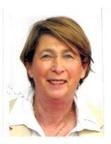Dorothea Shefer-Vanson's Blog
October 15, 2025
The Power of the Image
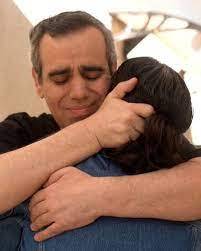
Just as at the beginning of the war, on the seventh of October 2023, we sat riveted to our TV screens, drinking in any and every scrap of information about what was happening on our southern border, just two days ago we once again sat riveted as the hostages returned and Donald Trump addressed our parliament. In this day and age we take it for granted that everything that happens is shown to us in detail and in full-blown colour more or less as it happens, while we sit in the comfort of our home.
I wonder what would have happened if this had been the case in the previous century, when the First and Second World Wars broke out, when Jews were torn from their homes and sent to concentration camps to be murdered en masse. Would those events have been shown on prime time TV? Would it have made any difference if they had? There were photographs and newsreels at the time, and some images have endured, but these were almost always post factum, or at least not widely available to a viewing public.
And so a whole nation, and possibly a whole world, watched with bated breath and swelling hearts as returning hostages ran into the arms of their waiting mothers and fathers, embracing spouses, siblings, friends, and even in some exceptional cases their own young children. It was impossible not to be moved at the sight, and not to share in the joy and relief of all concerned.
Over the course of the last two years we have witnessed the struggle of the families of the hostages to bring their loved ones home. Most of the hostages were brutally seized from their kibbutz homes on that dreadful morning by the terrorists who invaded our country after having spent over a decade building a tunnel system to rival that of the London Underground, acquiring weapons and training men to harm and destroy peaceful settlements. Motivated by implacable hatred, the perpetrators of the horrible deeds that ensued filmed their vile acts and broadcast them to the world. Anyone who was exposed to those sights was scarred for life.
The motivation for broadcasting those horrors was apparently to instill fear into the hearts of Israel’s citizens, but in fact the opposite happened. What had been intended to cow our population served only to stiffen our resolve to prevent any such assault ever happening again. And we were not the only ones to take that course, as President Trump has proved. The rubble that is what remains of the Gaza Strip proves that lousy actions have lousy consequences, and the sight is reminiscent of the devastated cities of Nazi Germany after they were bombed by the Allies in WWII.
With hindsight we all know that for a variety of reasons Israel let its guard down on that day, with the disastrous results from which we are suffering to this day. While the images on our screens just a few days ago have brought the country together in rejoicing at the happy family reunions, we must not forget the hundreds of innocent civilians who were slaughtered on that day two years ago, nor the hundreds of soldiers killed in the fighting since then.
We all hope that the peace will hold and that our nation can once again focus on building a better society and a brighter future for our children and grandchildren. We hope that from now on our screens will show us the benefits of peace enjoyed by both sides, with Gazans no longer meandering homeless but able to build a stable society and benefit from the good will that has been shown to them, and Israel thriving once again.
October 8, 2025
The Fourth Generation
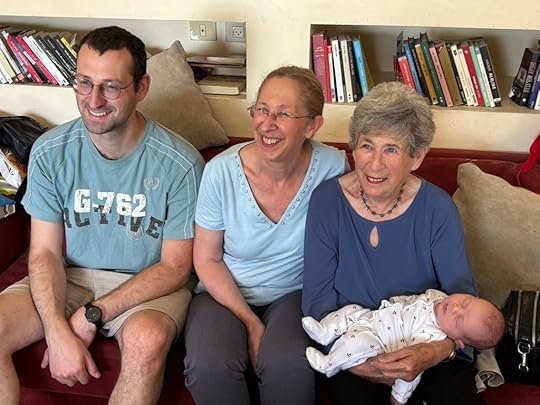
When my first grandchild was born some thirty years ago I was naturally thrilled at the idea of having become a grandmother and excited at meeting the new arrival. Over the years our family has grown, all three of our children have married and produced children, so that by now we have more grandchildren than we can count on the fingers of two hands, and have had to enlarge our dining table several times to accommodate the growing family. In my opinion, one of the sweetest sounds in the world is the babble of voices wafting into the kitchen (where I’m getting the food ready to serve) at Friday night dinner as the cousins communicate and catch up with one another’s activities.
By now most of our grandchildren are adults who have completed their compulsory military service, served in the reserves, gained academic qualifications and gone out into the world of employment, most of them in areas allied to Israel’s flourishing high-tech industry. Some are married or engaged to be married, while others are still out there looking for their life-partner, but all of them seem to have full and satisfying lives, replete with social and sporting activities, friendships galore and even some interest in cultural and musical activities. Several of them own dogs (and more than one in one case), reflecting their capacity to extend their love of animals beyond merely sharing pictures of cute cats on the internet. It goes without saying that each and every one of our grandchildren is talented and beautiful beyond words, and that Yigal and I love them all more than words can express.
But now a new arrival has joined our family, Our married grandson, Nadav, has become a father, thereby turning our daughter, Dana, and son-in-law, Itzik, into grandparents, and Yigal and myself into great-grandparents. Suddenly the weight of the four generations of our family has been sprung upon us, and my delight at our new status is tinged with a hint of sadness when I think of my own grandparents, whom I was not privileged to know. The lives of all my four grandparents (as well as those of Yigal) were cut short by the Holocaust, and so the family in which each of us grew up was limited to two generations only – parents and children. Our parents had known their own grandparents and were undoubtedly able to enjoy the company of numerous uncles, aunts and cousins as they were growing up. Sadly, all those extensive family relationships were cut short by the cataclysm that engulfed Europe in the 1930s and 1940s, murdering millions of Jews, including our grandparents and many of our relatives.
The arrival of new-born Ellie, apart from reminding me that I am far from young, serves to instill in me a new awareness of the significance of continuity in our family. Yigal and I have done our duty, produced offspring and sent them out into the world. Now it falls to our children to continue the chain that binds the generations to one another and ensures the future of our nation.
“When you look into your great-grand-daughter’s eyes you will realise that God exists,” I was told recently by a devout Christian friend when I told her I did not believe in any deity. When I met Ellie last week she slept the whole time, so I can continue to hold on to my atheism.
September 30, 2025
The Magdala Experience
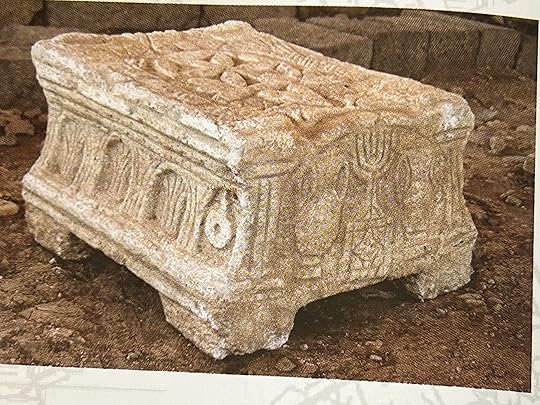
Whenever a building project is initiated in Israel, the Antiquities Authority is empowered by law to step in and undertake archaeological work. In 2009, when work began on the hotel and guest house beside Migdal in Galilee the ancient settlement of Magdala was revealed. The thriving fishing village dating back to the Herodian (Graeco-Roman) period was purportedly the birthplace of Mary Magdalene, who was rescued by Jesus and became one of his principal disciples.
The archaeological excavations also revealed an ancient synagogue, dating from the first century CE, as well as private houses and a market for the salting and sale of fish. The archeological park is integrated into the Magdala Hotel, a beautiful contemporary building, where we were able to enjoy the atmosphere and surroundings of Mount Arbel, Lake Tiberias (Sea of Galilee) and the verdant Galilee itself.
This site seems to represent the crossroads between early Christianity and Jewish life, and may well have witnessed Jesus addressing local communities, as it is known that he associated with the local fishermen, and even preached from their boats. In 1986 the unusually low level of Lake Tiberias revealed a 2,000 year-old fishing boat, which has been carefully preserved and is now on display in the specially-built Yigal Allon Centre in nearby Kibbutz Ginosar. At the time of the Jewish Revolt against the Romans in 67 CE it is reported by Josephus Flavius, that the Jews of Migdal took to their boats on the Sea of Galilee in an attempt to escape the Roman soldiers, but there was no wind to fill their sails and so they were trapped and slaughtered by the Romans, and according to Josephus ‘the sea was red with blood.’
One of the most important finds in the excavated synagogue is the unique Magdala stone, which is believed to have served as a plinth on which the Torah scroll was placed to be read. On its sides are carved representations of objects from the Temple in Jerusalem, among them the seven-branched menorah and rosettes which may refer to the veil before the Holy of Holies.
A separate building set in the hotel’s landscaped grounds is known as Duc in Altum and contains several small chapels commemorating various aspects of the life of Jesus. Its name comes from an expression meaning ‘Go into the Depths’ that Jesus is supposed to have told his fishermen disciples (though Latin was not the language that Jesus is presumed to have spoken). Each chapel contains an expressive mosaic depicting an event described in the New Testament. A small group of Catholic scholars is attached to the guest house, where the Magdala Learning Institute is located. The lay priests and celibate men and women of the community are aided by young volunteers from various countries who support the Institute’s online communications system.
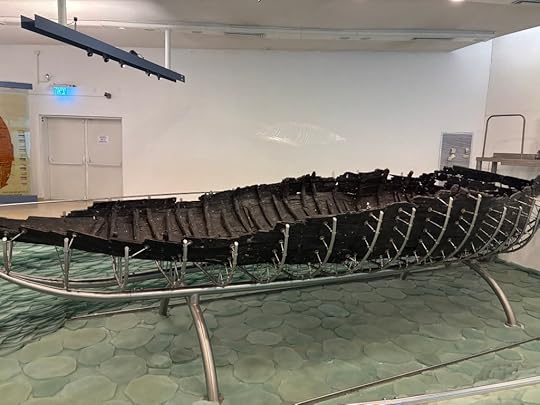
The hotel building was designed by local architect, Rannin Nakhleh-Khoury, who has her office in Jerusalem, in collaborated with Mexican interior designer Sofia Aspe. The all-female design teams have produced a building that is both aesthetically pleasing and comfortable, affording a view towards the Kinneret from the spacious lobby and the grounds, and a view over the gardens from the dining room. I was struck by the attention to comfort and aesthetics throughout the hotel, with plenty of toilets tucked away discreetly in niches, well-built doors to rooms, cutting off almost all noise from outside, and pleasing art work in the rooms and public spaces. Along one of the corridors a delicate mural of leaves and flowers, entitled ‘The Garden of Joy,’ has been painted in collaboration with visiting guests. There is a toilet nearby, which I have dubbed ‘The toilet of joy.’
We spent a very enjoyable week at the hotel, which provides an excellent and varied cuisine, obliging staff, a charming swimming pool and all the wonders of this unique archaeological and historical site.
September 14, 2025
Changing Channels

After wrestling for several years with the less-than-ideal delivery of TV services by one of the two main providers in Israel, we decided to take the fateful step (once again) of changing over to their orincipal rival.
This was not a simple procedure, as the delivery of TV services is now intricately bound up with the provision of internet via WiFi as well as telephone services. I was a passive observer, or rather listener, to long, convoluted and technical telephone discussions between my OH and the various companies that provide such services, first to receive services from one, and then to detach from the other.
Not as easily done as said. First, we had to be disconnected from Company A. This meant that for a couple of days we were deprived of both TV and internet. Being deprived of one of these is bad enough, but living without both is well-nigh unbearable. On the first evening on which we found ourselves completely cut off from the outside world I insisted that we go out to see a movie, any movie, anywhere. It’s true that the radio was still working, and we have a large library of physical books to read, but our routine most evenings consists of sitting down together to watch and hear the day’s news in Israel and the wider world. And these days there’s plenty of both, if not too much. But that’s another matter entirely. What’s worse, I find it impossible to contemplate embarking on my morning exercise routine without being able to watch the news from England and the USA on Sky and CNN.
Then came the procession of technicians – each one an expert in his field, whether it be internet, telephone, television or electricity. Day after day we were stuck in our home, waiting for the arrival of one or another of those precious souls whose expertise would eventually reconnect us to the world of visual images, endless programmes of entertainment, information, movies, fun and challenging facts and figures to which we seem to have become addicted. In our defence, I can only say that we are both well over retirement age, and do sometimes go out to concerts and lectures when the occasion arises (and to bridge tournaments in the OH’s case).
Eventually the last technician left the house, abandoning us to our newly-installed TV services and our struggle to loccate the programmes we used to enjoy as we learned the secrets of navigation. And so, these two old dogs have had to learn new tricks, and so far are enjoying the experience.
September 5, 2025
Alphabet Soup by Gabriel Lanyi
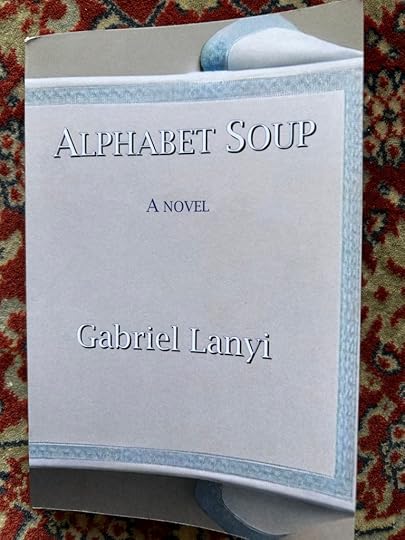
As soon as I finished readiing this book I felt a strong urge to go back and read it from the beginning again – something of a rare experience for me. The author of this book has prepared so many traps and set so many false trails for the unsuspecting reader that there is no way he or she can fathom what is in store or where the book is taking them. Or perhaps anyone like myself who is accustomed to the conventions of the literary idiom and also belongs to a different era finds that they are all at sea in the wealth of esoteric knowledge displayed here, alongside sometimes tedious accounts of travel to distant places, whether exotic or banal. After all, how can one equate a heart-stopping journey by rickshaw through Cochin with a detailed account of the metro stations of Moscow?
Be that as it may, the author definitely knows a lot of things about a lot of things. He has chosen to introduce his book to the reader by means of a prologue written in a confiding tone in which the narrator sets out to explain what the book contains but then goes off on a tangent describing a real or imaginary typographic machine with a detailed account of the printing or typographic process that has dominated human written communication for the last five hundred years.
In a device that harks back to a seventeenth-century literary convention, each chapter begins with a summary provided by the putative narrator, giving an indication of what is contained within it. Thus, the reader is provided with a context that enables them to grasp the direction in which the book may or may not be going. More or less from the get-go the reader knows that the book is set in 1992, “some two-and-a-half years after the fall of the communist regime in Romania.” That, in fact, is the concept that dominates the whole book, providing the reader with the viewpoint of one of the main protagonists, fifty-year-old Aurelia, who leaves her native Romania to visit her elderly aunt in Boston, USA. Aunt Valeria is a piano teacher and much of the book is devoted to arcane discussions that supposedly take place between the various characters regarding the two separate recordings of Bach’s Goldberg Variations by Glenn Gould, the last concert given by Dino Lapatti in Besancon and various aspects of harmonic theory that are as remote from the average reader as astronomy is from astrology.
This is no clash of civilisations, but it certainly represents some kind of culture clash for an individual coming from a society that has been dominated for generations by the shadow of the police state. And so Aurelia, although an independent and spirited woman, finds herself adrift in Boston, albeit under the tutelage of her aunt Valeria and her cousin Lawrence. A friend of the family, Leonard, also plays a part and is even persuaded to take Aurelia on a trip to New England before she returns to Romania. The author’s choice of similar-sounding names tends to lead to confusion in the reader’s mind, and this may indeed be intentional. We are also informed that Leonard (or is it Lawrence?) is writing a book, which is somehow embedded in the narrative we are reading, though it is not always clear where one begins and the other ends. In addition, lengthy epistles from a distant admirer of Aurelia’s describe his travels in distant lands, and these letters are clearly distinguished from the rest of the book by the use of a different font, helping the reader to find their way through the labyrinth of information contained in the book. In a final throwaway line we learn that here, too, the Holocaust has played a part, albeit in a minor and almost imperceptible way.
As the book ends the reader finds that even intellectuals who seem to live in elite spheres of cerebral ecstasy are prone to mundane human emotions, albeit not to an inordinate extent. And so Aurelia chooses to resume her mundane but familiar life in Romania and rejects the comfort and unfamiliarity of life in America, leaving three men disappointed in love but apparently accepting their fate with equanimity.
August 27, 2025
Living as a Split Personality
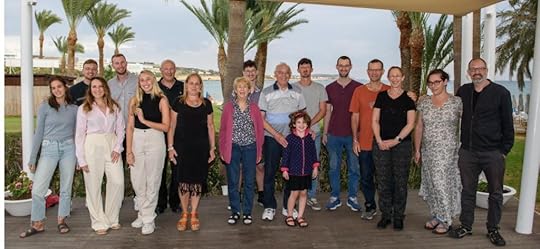
Daily life in Israel has its ups and downs, as does life anywhere in the world. I really can’t complain, as I have many consolations. Among these are the proximity of my family and a few good friends, the constant availability of classical music, whether on the radio or in live performance, a good medical service and the sunny climate and surroundings of the Jerusalem hills. I suppose I can consider myself privileged on all those counts, in addition to having a comfortable house, enough food to eat and a decent pension from my former place of work.
But how can I sit back and enjoy my life (or what’s left of it) at a time when our hostages are still being held by Hamas in appalling conditions in the tunnels of Gaza? Being aware of their suffering, and that of their families, serves as a constant reminder of the dreadful situation in which Israel now finds itself. The government is in thrall to uncaring politicians whose main concern seems to be to channel funds to their supporters and pursue a policy that involves imposing their ideas of territorial expansion on us all, no matter what the cost. In essence, this comes at the expense of the lives and livelihoods of the general populace, soldiers and civilians alike, both in Israel and in Gaza.
And how can I enjoy life when the political situation seems to go from bad to worse, with a growing rift between the segment of the population that adheres to the ultra-orthodox version of Judaism and the wider population? While the ultra-orthodox refuse to serve in the military, they enjoy all kinds of financial benefits as a result of their growing political clout. In its early years the population of Israel was united in its determination to build and defend the country, putting an end to two thousand years of the Jewish nation’s exile from its homeland. But today that unity of purpose seems to have been lost as a result of the differences of opinion regarding the role of religion in matters of state and the resulting disagreement as to the country’s path regarding policy and territory.
So here I am, sitting at my study, unable to accept the current state of affairs, but impotent to do anything about it other than participating in the weekly demonstrations held to try and influence the government to gain the release of the hostages and put an end to the war in Gaza. No member of my immediate family is involved in the war, and for that I am immensely thankful. But my heart goes out to all those parents of soldiers who are in danger. I find it hard to believe that I’m alone in living in this state of split personality, and can only hope that some resolution can soon be found to the situation.
Living as a Split Peronality

Daily life in Israel has its ups and downs, as does life anywhere in the world. I really can’t complain, as I have many consolations. Among these are the proximity of my family and a few good friends, the constant availability of classical music, whether on the radio or in live performance, a good medical service and the sunny climate and surroundings of the Jerusalem hills. I suppose I can consider myself privileged on all those counts, in addition to having a comfortable house, enough food to eat and a decent pension from my former place of work.
But how can I sit back and enjoy my life (or what’s left of it) at a time when our hostages are still being held by Hamas in appalling conditions in the tunnels of Gaza? Being aware of their suffering, and that of their families, serves as a constant reminder of the dreadful situation in which Israel now finds itself. The government is in thrall to uncaring politicians whose main concern seems to be to channel funds to their supporters and pursue a policy that involves imposing their ideas of territorial expansion on us all, no matter what the cost. In essence, this comes at the expense of the lives and livelihoods of the general populace, soldiers and civilians alike, both in Israel and in Gaza.
And how can I enjoy life when the political situation seems to go from bad to worse, with a growing rift between the segment of the population that adheres to the ultra-orthodox version of Judaism and the wider population? While the ultra-orthodox refuse to serve in the military, they enjoy all kinds of financial benefits as a result of their growing political clout. In its early years the population of Israel was united in its determination to build and defend the country, putting an end to two thousand years of the Jewish nation’s exile from its homeland. But today that unity of purpose seems to have been lost as a result of the differences of opinion regarding the role of religion in matters of state and the resulting disagreement as to the country’s path regarding policy and territory.
So here I am, sitting at my study, unable to accept the current state of affairs, but impotent to do anything about it other than participating in the weekly demonstrations held to try and influence the government to gain the release of the hostages and put an end to the war in Gaza. No member of my immediate family is involved in the war, and for that I am immensely thankful. But my heart goes out to all those parents of soldiers who are in danger. I find it hard to believe that I’m alone in living in this state of split personality, and can only hope that some resolution can soon be found to the situation.
August 19, 2025
Mixed Feelings
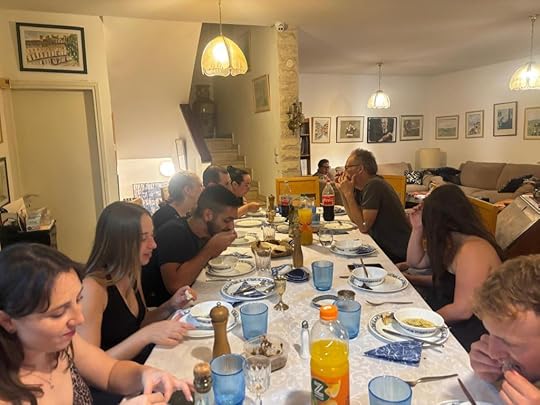
Life in Israel continues to be a heady mix of joy and frustration. We were happy to return to our house near Jerusalem but it was not an unalloyed pleasure.
We had been informed in advance that the fence around our garden was showing signs of collapsing, thereby endangering anyone standing or walking on the street below. We knew that something would have to be done to rectify the situation. On a visit to the nearby plant nursery, where I went to restock the potted plants in our house which hadn’t been watered for two months, one of the workers there offered his help. His name was Bilal, and after a brief phone call he came (on one of the hottest days of the year) and set to work getting rid of the collapsing metal fence. His strength and energy were astounding, and after a few hours of work nothing was left of our fence and the plants clinging to it. Now we are waiting for a new fence to be erected by a firm that specializes in that kind of work.
Our joy at being able to see our children and grandchildren again was tinged with a note of apprehension when we realized that our electric dishwasher had given up the ghost. The idea of clearing away the dishes from a meal for seventeen people without the aid of a dishwasher was alarming, so one of our first tasks after returning from France (as well as shopping for provisions) was to buy and install a new dishwasher. This was done with Yigal’s usual alacrity and efficiency, and a new machine was delivered and installed in short order, within a day of our return.
And so, the two days after our arrival in Israel were spent shopping for essentials as well as cooking and baking and getting ready for the ‘invasion’ on Friday evening by almost all our children and grandchildren. And what a joyful reunion it was! They came from far and wide, eager to see us again and to be reunited with their cousins once more. Being hugged and kissed by each and every one as they came into the house was heart-warming, especially to experience our nine-year-old granddaughter hurling herself into our arms and telling us that she had missed us, as well as to meet our newest grandchild, four month-old Emily. Even our heavily pregnant grand-daughter-in-law was prepared to withstand the two-hour drive from Binyamina to join us. Now we are awaiting the arrival of our new great-grandchild – another exciting milestone.
Mountains of post had accumulated while we were away, and many official documents and procedures had to be attended to. In addition, our TV sets were on the blink, and that, too, required endless telephone calls to the company providing that service. Most ominous of all, because the house had been standing empty for over two months, cockroaches, the dreaded ‘jukim,’ had felt free to take possession. Our wonderful cleaner had come and cleaned the house the day before our arrival, managing to get rid of as many of them as possible, but remnants of them were still in evidence once we were back. I personally have an unreasonable dread of those insects and cannot even glance at a newspaper page with a picture of one, so imagine my horror at finding a dead one on the stairs and then seeing a live one in our bathroom! I think my scream could be heard back in France.
In Israel there is no escape from the dreadful political situation, so that the joy of being home again is tainted by the dark cloud cast by affairs of state. Israel is a democracy, so once one has cast one’s vote there is little one can do to affect the situation. While demonstrations are still allowed, there is no indication that they have any effect on policy-makers. So life goes one, the sun shines and we do our best to remain optimistic.
August 11, 2025
Les Renaissances
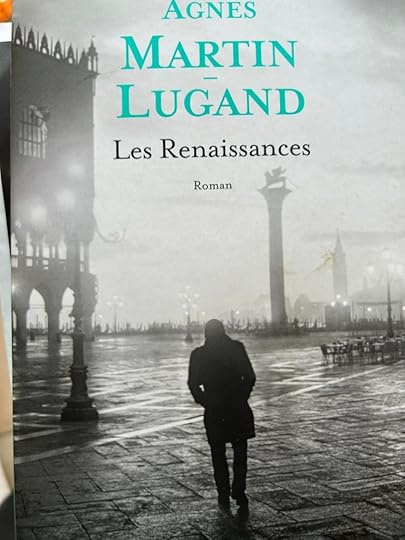
Where does a writer get his or her inspiration from? That is the subject that animates this book by Agnes Martin Lugand, where a chance encounter in a Paris bistro sets a writer suffering from writer’s block off on the trail of a storyline, which she pursues with unwavering (and inconsiderate) persistence. I read this book in the original French, but its content could be applied with equal persuasiveness in any culture and language.
The heroine of the book, Rebecca, is struggling to fight depression and her inability to produce another novel, and probably there is a logical connection between the two. In addition, she is feeling unhappy in her marriage to Estaban, who is originally from Spain, but she finds consolation in her relations with her twin teenage children, Oscar and Finane. The various chapters of the book are written from the standpoint of different characters at different times, giving the reader insights into the mental processes of each of them.
And so, in order to escape the pressures of family life, one eveing Rebecca goes to a bistro near her Paris home. There she encounters Milo, a restorer of antique furniture, who in turn is seeking to escape from the pressure of the nearby presence of the woman he once loved and lost. They meet and he tells her his story over the meal they share at the bar.
After returning home, Rebecca finds that her creative juices have begun to flow once more, and she sits down and writes a chapter of a new novel. After a sleepless night she decides that she has an idea for a full-length book, but her sense of honesty or something else impels her to get into her car and go haring off through France to the Provence region in the south where Lino has his studio and home in a charming old farmstead.
When Rebecca puts her project before Lino he is at first totally opposed to the idea, but is gradually won round, and this sets off a series of meetings between the two in which Lino gives an account of his life, love and labours pursued by his demons and the shadow of his lost love. The story has many twists and turns, bringing the reader face to face with the life of bohemian artists in the south of France, Italy (especially Venice) and Paris. As we (and Rebecca) hear and read Lino’s account of the vicissitudes of his life the relations between writer and subject turn into some kind of doomed love affair, and everything seems predestined to end in tears.
The book concludes with a cloud of hypotheses and assumptions, leaving the reader to decide for him or her self how things really ended. Why the term ‘Renaissances’ was chosen as the title of the book is not entirely clear either, leaving the reader at liberty to choose how to interpret it. We are told that Rebecca’s novel is a resounding success, and even enables her to avenge to some extent the past injustices inflicted on Lino. But whether the reader is convinced that any or all of the events described in the novel are convincing, feasible or even acceptable remains an open question.
July 31, 2025
Going Home
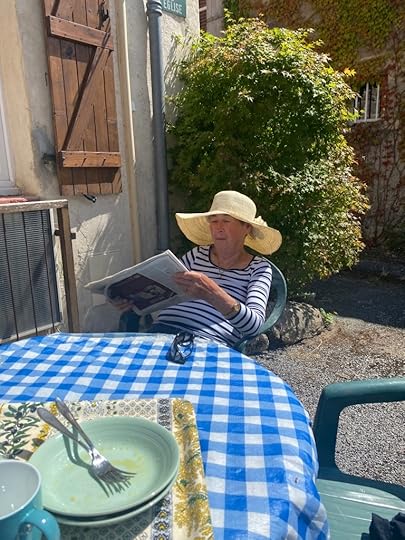
Life in rural France has many advantages. The countryside is beautiful and pretty empty, with peaceful villages here and there, often many miles apart from one another. The few people one encounters are usually friendly, and certainly polite. The weather is generally pleasant, albeit on the cool side. So why am i longing to be back in Israel?
First of all, Israel is my home. England was my home for the first twnety-four years of my life, but then I went to live in Israel, and it became my new home. My reasons for moving were many and varied. Officially, I went to Israel to continue my studies towards an M.A. in Sociology, and was fortunate enough to be offered a job as a research assistant in the Sociology Department of the Hebrew University in conjunction with my studies. Unofficially, I was in love with te vibrant, sun-drenched country, which I had visited several times by then. I enjoyed the open friendliness of the people, and was lucky to have several relatives living there who opened their homes to me. I also thought that Jews ought to live in their homeland now that we once again had a country of our own at last.
I still emjoy the life I have been able to create in Israel, and especially being able to see my friends and family. My husband, is a native Israeli (‘sabra’) who has enabled me to be part of Israeli society, though I still retain some of the English reserve with which I grew up and which was part of my education. I have managed to learn Hebrew and even made my living through my ability to translate from that language into English, managing in the process to absorb many interesting texts and gain a deeper understanding of Israeli life and culture.
Over the years, life in Israel has changed. The single radio channel of the 1960s is now overshadowed by dozens of inividual channels, my flavourite being the one devoted to classical music. The supposed classical music channel I listen to in France is swamped by its announcers, who love to hear themselves talk. One early-morning programme is consistently ruined by the simultaneously-played sound-track of an English-language film, possibly a James Bond one, consisting of the sound effects and dialogue that accompany those films. This happens almost every morning between seven and eight, as I’m doing my exercises, and no one in the studio seems to be aware of this or do anything to stop it. Sheer torture!
And so, as our unintentionally long stay in France comes to an end, I’m ready to go back to Israel with no regrets. The tranquillity of France is all well and good, but nothing beats being at home in my country, with friends and family within calling distance, constant sunshine in the summer and a classical music programme on the radio that really does provide its listeners with classical music for most of the day and night. Granted, currently life in Israel is fraught with tension and an unhealthy political situation, but this too shall pass, and normal life will eventually be resumed and enjoyed, as it has been in the past.

